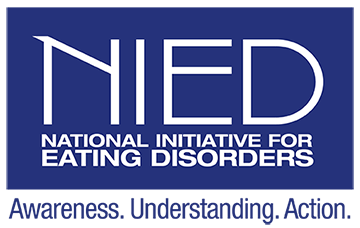5 simple ways to practice self care
July 24 is National Self Care Day and here at NIED we couldn’t let it go by without talking about this important part of recovery. Self care can be challenging for anyone with mental illness, but we know that it is particularly hard for those with Eating Disorders.
Many people see self care as doing things like putting on a face mask or getting a pedicure. While these things definitely fall into the category of self care, there are lots of other ways that you can take care of yourself without breaking out a gooey face mask or the nail polish. Here are 5 ways to practice self care that are accessible to anyone with an Eating Disorder.
Have a shower or bath
This may sound simple but those who struggle with depression (like many with Eating Disorders do) it can be a real challenge to keep up with their personal hygiene. Simply stepping into the shower can take a huge amount of effort for someone who is finding it hard to get out of bed in the morning. Taking a shower or bath when you are feeling down may not fix everything, but you would be surprised how much better you feel with freshly washed hair. If you are struggling with bathing because you are avoiding your body, consider taking a bath with bubbles. That way you can still bathe without being focused on how your body looks.
Take your medication
This is another one that may sound simple but can be incredibly hard to do when you are in the depths of an Eating Disorder. It is not uncommon for people with Eating Disorders to stop taking medication that has been prescribed to them when they are feeling low. If this is your pattern there is nothing to be ashamed of. However, not taking your medication can have uncomfortable side effects that can seriously affect your mental and physical health. People who go on and off their meds regularly often experience huge highs and lows which is not good for anyone’s wellbeing. Committing to taking your medication as prescribed is an act of self care and it definitely can be achieved if you put your mind to it.
Accept help
Accepting help in itself is an act of self care for those with Eating Disorders. People with Eating Disorders often tend to push people away and refuse treatment because they don’t believe they are sick enough or deserve the care of others. If a friend, family member or treatment professional is offering their support, take it no matter how hard it is. Allowing yourself to be vulnerable and accept help from those around you is the most caring act you can do for yourself, especially if you are just starting out on your recovery journey. Eating Disorders thrive in secrecy and the more you can accept help from those around you the better it is. Recovery still won’t be easy, but having support is one of the keys to recovery and it is the ultimate act of self care to let people in.
Practice self compassion
This is a tip you will want to apply to all aspects of your recovery and life. People with Eating Disorders are often perfectionists and can be very rigid in the goals they set for themselves. There is no such thing as a perfect way to recover and realizing that is an act of self care. Be compassionate with yourself and don’t beat yourself up if you feel like you messed up. Recovery is hard and holding yourself to an impossible standard will only make it more challenging. Allow yourself to breathe, rest and take breaks. Recovery is a marathon, not a sprint and showing yourself care and compassion along the way will only bolster your recovery in the long run.
Find what works for you
When it comes to the more typical acts of self care, find what works for you. You don’t have to throw yourself a spa day if that is not what makes you feel good. There are so many options to choose from when it comes to self care – it is really about finding what feels good to you (outside of your Eating Disorder). Simple things like watching a TV show that you like or reading a good book are great options. Spending time with a good friend or playing with your dog in the backyard are also possibilities. A lot of times people with Eating Disorders have fallen out of touch with the things that bring them joy because they have been wrapped up in the Eating Disorder for so long. Take some time to play around with it. That exploration can be self care in itself.
